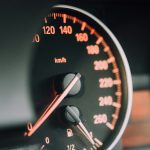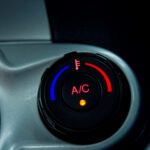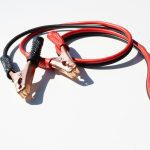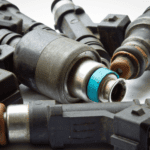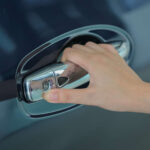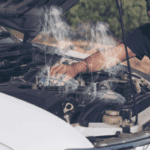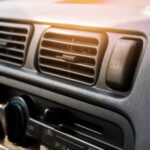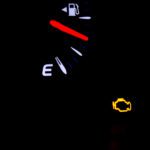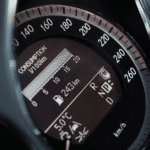A humming noise in the car getting louder with speed is annoying, and depending on the cause, it can become quite dangerous. It can be tricky, but if you can identify the general area the humming noise is coming from, you’ll be able to find the exact cause using this article.
6 Possible Causes of a Humming Noise Getting Louder With Speeds
When looking to identify the exact cause of humming noises, each problem below has other symptoms to be aware of.
Unevenly worn tires
Unevenly worn tires can produce loud humming, rumbling noises, and vibrations which will only worsen the faster you drive. When a tire wears unevenly, you will have raised tread blocks; the noise is the intermittent contact of the tire on the road. Another problem with an unevenly worn tire is that the vibrations can unnecessarily stress the engine and gearbox. The typical types of wear that can appear on tires are:
- flat spots
- heal and toe wear (raised treads)
- Misshaped tire caused by a broken tire belt
Unfortunately, a tire causing a humming noise only means it needs replacing; it is impossible to salvage or repair it. The good news is these problems usually only happen to old tires, and uneven wear usually means the tire is below the legal limit regardless.
Bad wheel bearings
A wheel bearing problem is the most common cause of a humming noise when traveling at speeds. Depending on how bad the wheel bearing is, it can be that the noise isn’t prominent until you hit above 20 mph. The noises can be described and sound differently depending on the speeds you travel; a common way to describe the noise is that it sounds like an aircraft.
Wheel bearings are large metal rings (casing) containing moving metal balls (ball bearings) inside a smaller metal ring (race); the ball bearings are packed with grease. They are pressed onto the drive flange and into the hub. When a wheel bearing fails, usually the bearings become dry and no longer spin smoothly hence the rumbling noise. Once the bearings overheat from lack of lubrication, the race in which the bearings rotate becomes damaged, the casing splits, and the wheel bearing falls to bits.
If you ignored a wheel bearing problem, eventually, the bearing would get so hot it would melt the nut that holds the drive flange in place, and the wheel would come off. Luckily, this doesn’t happen overnight and would happen from prolonged driving on a faulty while bearing.
Damaged engine internals
A car engine consists of internal rotating components, a crankshaft, a camshaft, and a series of bearings. The crankshaft and camshafts are balanced to rotate without any distortion when new. Engines spin at least 1200 rpm at idle and higher when driving faster. So if these components weren’t balanced, an engine would rattle itself to pieces as soon as it hit a few thousand RPM.
These components are susceptible to damage, usually from problems like running the engine low on oil, engine oil contaminants, modified engines, or just the age of the components. Humming noises are common when the crankshaft is bent or the bearings are scored, which means the engine is not spinning in harmony. Alongside other issues like vibrating and the engine shaking at high speeds.
Faulty transmission
Most commonly caused by low transmission fluid, a worn shaft, damaged gears, bad differential, or worn bearing can cause a humming, grinding, vibrations when driving, or whining noise. Sometimes when you change gear and have the clutch pressed, the humming can briefly disappear. The other occurrences are the humming noise in certain gears when traveling at specific speeds or when stationary in neutral.
Topping up or changing the transmission fluid can sometimes be all needed to stop the humming noise. However, damage can occur, so it needs a rebuild or replacement.
Worn engine pulley bearings
Although a humming noise can usually be heard when the engine is idling, the noise can get louder the faster you go. Revving the engine when idling will also confirm the problem may be a pulley or belt problem.
Engine pulleys, the alternator pulley, and the belt tensioner have a bearing similar to a wheel bearing; If a pulley bearing is dry, it will only overheat, start smoking, and will develop a low-pitched humming noise. Another problem that can occur is the belt stretching, causing a screeching noise.
Replacing the problematic pulley or tensioner alongside the belt will solve the problem. Unless you have the right locking tools and knowledge, you shouldn’t undertake replacement of the cambelt specifically (different from the alternator belt); preferably, have a mechanic replace it for you.
CV joint worn
The Constant velocity joints, or CV joints, are mechanical couplings that allow the wheels to turn while rotating. Packed with grease and sealed via a gaiter, it keeps them lubricated and spinning smoothly. The rubber gaiters crack and perish with age; when this happens, the gaiter splits and grease leaks, which makes one hell of a mess! A CV joint will dry very quickly, as grease is thrown out when the wheel rotates at speed. A clicking noise when turning at low speeds is the most common symptom of a dry CV joint, but occasionally, you will experience a humming noise that gets louder the faster you drive.
Once the clicking and humming noise has started, replacing the CV joint is normal. Repacking with grease and putting in a new gaiter can sometimes solve the problem, although it rarely works.
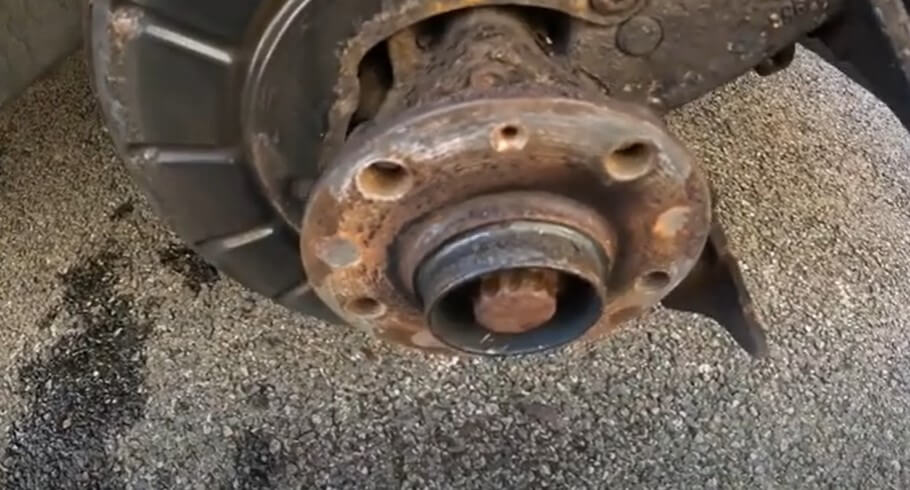
Risks of Ignoring the Humming Noise
The most significant risk of ignoring a humming noise is that the car could become uncontrollable and break down. At the same time, driving, which always happens with a car full of people at an inconceivable time.
Depending on the cause of the humming noise depends on the severity of the failure; for example, a faulty wheel bearing worst case, could cause the wheel to fall off. Whereas the alternator belt tensioner failing may cause the belt to come off, and the car engine will shut off while driving. Equally as bad, but two potentially different outcomes.
Safety risks aside, the other issue is that if the problem is ignored, other related and supported components can get damaged. What started as one component needing to be replaced could end up with several, which will cost a lot more to sort.
If your car is making a humming noise when driving, do not continue to use the vehicle and check for the fault or, better yet, have the car inspected by a mechanic. Apart from transmission-related defects, the other items are not expensive problems to repair.
Frequently Asked Questions
How can I tell if the humming noise in my car is coming from the wheel bearings or the tires?
To determine if a wheel bearing is the cause of the humming noise, jack up the car and spin the wheel; you will be able to hear a loud rumble or grinding noise. Car dependant, you may need to jack up the vehicle in axle pairs to spin the wheels. To check if the tires are causing the humming noise, run your hands along the tread blocks feeling for excessive heel and toe wear (raised tread blocks).
Can a humming noise in my car getting louder with speed be caused by a problem with the transmission?
The humming noise in your car getting louder with speed can be caused by a problem with the transmission. In particular, if the noise comes from the front of the vehicle and is louder when you accelerate, it could be a sign of a failing front differential or transmission. Other symptoms may include difficulty shifting gears, grinding or whining noises, or leaking transmission fluid
Is it safe to continue driving my car if I notice a humming noise that gets louder with speed?
It is unsafe to continue driving your car if you notice a humming noise that gets louder with speed. The humming noise could indicate a severe problem, such as a failed wheel bearing, tire problems, or transmission issues, leading to a loss of vehicle control when driving. Additionally, continually driving with this type of problem can cause further issues with other components making the repair more expensive.
Bottom Line
Humming noise in a car getting louder with speed is commonly a wheel-bearing fault or tire-related problem. Even if either of those does not cause the problem, you should not continue driving it. Further issues could occur, the repair could get very expensive, and the car could be dangerous to drive.
